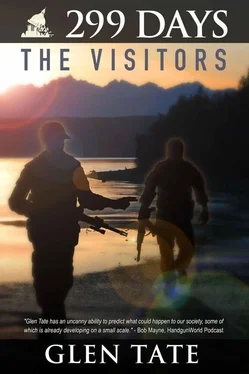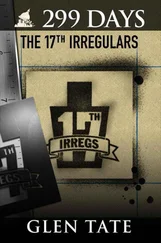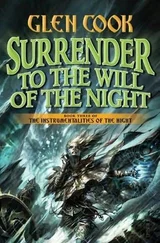Bobby was the first to recognize Ted. “Ted? That you? No way!”
Wes just said in his southern drawl, “Well, I’ll be…”
Scotty and Pow said “Oh shit” at the same time. They knew what this meant.
Everyone on the Team was excited. They lived for this. They idolized Ted. They wanted to be like him. They loved learning from a real Green Beret. They wanted to be a part of whatever Ted was a part of. They wanted to go into battle with Ted. It was how they were wired. They were sheepdogs.
They wondered who the guy with Ted was and he introduced them to Sap.
“Where’s Ryan?” Chip asked.
“He’s driving the girls back,” Pow said.
“Girls?” Ted asked. He had not seen the girls so he didn’t know if they were girlfriends. He was hoping that “girls” meant the men’s daughters. He hoped it didn’t mean girlfriends, but he suspected it did. That was always trouble. Fighters with wives or girlfriends. They complicated everything. But it was common for SF to train fighters with families and, in some parts of the world, multiple wives, and even harems. Wives or girlfriends or whatever were nearly always part of the equation.
“Yep,” Bobby said. “We’re pretty hot shit out here,” he said jokingly. “It was finally time to get a little, but…you guys showed up.” He didn’t want to sound like he was whining, especially at Ted, so he added, “Business comes first. But, I gotta say, when business is done, I want to get back to that.”
“You bet,” Grant said. He wanted to keep his guys happy and dangling some girl time in front of them was a good way to do that.
“We’ll get Ted and Sap squared away,” Grant said, “and then you can text your friends later tonight,” Grant said in his dad voice, like he was telling them to do their homework before they could play video games with their friends.
Everyone took a seat. Ted remained standing, watching out the front window to see if anyone else came by. When everyone was seated, he turned around to face the group and give the briefing.
“We can make this initial meeting short,” Ted said. “I’ll go over why we’re here, what we hope to do, and our next steps.”
Ted paused to collect his thoughts. “Why we’re here. That’s easy. To train you guys and your neighbors to be a guerilla unit. You guys know the drill. This is what Sap and I did in the unit.” The Team started realizing that this was real. It was not a day shooting targets at the range. This wasn’t some L.A. Riot kind of thing that would blow over in a few days. They were part of something huge. Once in a lifetime huge. Tell the story to the grandkids huge. Be a hero for generations to come huge.
“Why we are here, specifically?” Ted asked rhetorically. “Chip has been in touch with me. He said you guys had a good set up here. Plus Chip has about half the guns from the store.”
Chip winced. “Uh, I kinda hadn’t mentioned that yet.”
“Oh, sorry,” Ted said.
“No problem,” Chip said. “I just didn’t want people to unnecessarily know.”
“I wondered where all the guns from the store went,” Scotty said.
“Grant’s basement,” Chip said. He told them how many guns, cases of ammo, magazines, optics, and accessories were there. He smiled while telling them.
So did Ted. “How many again?” Ted asked. Sap was taking notes. What a bonanza. Thirty plus ARs, all the fixin’s, and some miscellaneous AKs and shotguns. Plenty of ammo. All pre-positioned in the place they needed to be. This was an SF dream.
“I have a similar number of the same kinds of things,” Ted said. “I took them from the store to my place near Olympia. Between what you guys have and what I have, we can arm sixty or seventy fighters. Throw in the guns and ammo that the residents already have and we’re talking 100 fighters.” Ted smiled. So did Sap.
“We have at least thirty good residents here,” Grant said. “We have a very good guard system.” Grant described the guards and their equipment. He told the story of how they mobilized for the expected attack to get back Gideon’s semi-truck of food. Ted and Sap looked at each other and tried to contain themselves. Sap was writing all of this down.
“Shit,” Sap said. “We came to the right place.”
Ted continued, “Besides me being able to trust you guys and the fact that you have some hardware out here, Chip reported that you guys were squared away. The other reason we picked this place is your strategic location. You’re right on the water so infil and exfil is easy,” he said, meaning infiltrating supplies and other fighters in, and exfiltrating them out to wherever they needed to go. “Plus there are tons of wooded areas to house the training facilities. We can probably do that without anyone seeing a thing. They’ll wonder where all the guards and the Team went, but we’ll deal with that.”
Training indigenous fighters in a civil war was harder than when the whole population was on your side. In a civil war, the good guys and bad guys were mixed together in one place so the enemy could see you. In a traditional war, like WWII, the whole population was united, so it was OK for them to see your activities; not so in a civil war. This was a problem they could overcome, Ted thought. SF trained to work in civil war settings where some portion of the local population was hostile and was actively trying to find the SF-trained fighters and turn them in. Which brought Ted to the topic of popular support out there.
“What’s the political makeup out here?” He asked. Everyone turned to Grant.
“Mostly Undecideds,” Grant said, “but I think we’ll end up having a solid majority of Patriots. There are some Loyalists, but they have a pretty small following. I am working on a map showing the politics of each household.”
Ted and Sap smiled at that.
“We need to kill the Loyalists,” Ted said, in a flat, dead serious tone. That shocked everyone.
“What?” Grant asked.
“Kill them,” Ted said. Sap nodded.
“What, just round up people I think disagree with me and kill them?” Grant asked semi-sarcastically.
“Yes. How else do you do it?” Ted replied.
“Are you kidding?” Grant asked. “Just start killing people we think disagree with us?” He was rethinking the wisdom of working with Ted. This was starting to get weird.
“No,” Ted said, “I’m not kidding.” He looked at Grant to size him up. Was Grant up to this? All the killing that needed to be done? This Grant guy had no idea what war was about.
“Are you the one who’s kidding, Grant?” Ted asked. “Letting Loyalists walk around, see what we’re doing, and call in the Loyalist regular units? Why would I expose my fighters and myself to that risk?” Ted said. He was dead serious and was getting annoyed with Grant. He thought Grant was a fighter, not some pansy ass. Maybe Grant was like a lot of “Patriots”: all talk and no willingness to do what was necessary. Maybe Grant, who was a lawyer after all, thought this Patriot thing was just some debating club.
“Just kill them?” Grant asked. “Without any proof they’re going to turn us in? No evidence?”
“No, not all of them,” Ted said, realizing that he and Grant were miscommunicating. “Only people we know or have a very good idea are trying to kill us.” Ted didn’t want to alienate Grant, who was the apparent leader of the indigenous fighters he was tasked with training. And Grant was a friend. Ted needed to think like the person he was trying to persuade. Grant was a lawyer, so maybe he should approach this from that perspective.
“This isn’t a court case, counselor,” Ted said with a smile to soften the blow of that statement. “The Loyalists aren’t on trial in a court room. This is a war. You knew that there was a war, right?” Ted was serious about that: He wondered if Grant knew there was a war. Maybe he didn’t.
Читать дальше











